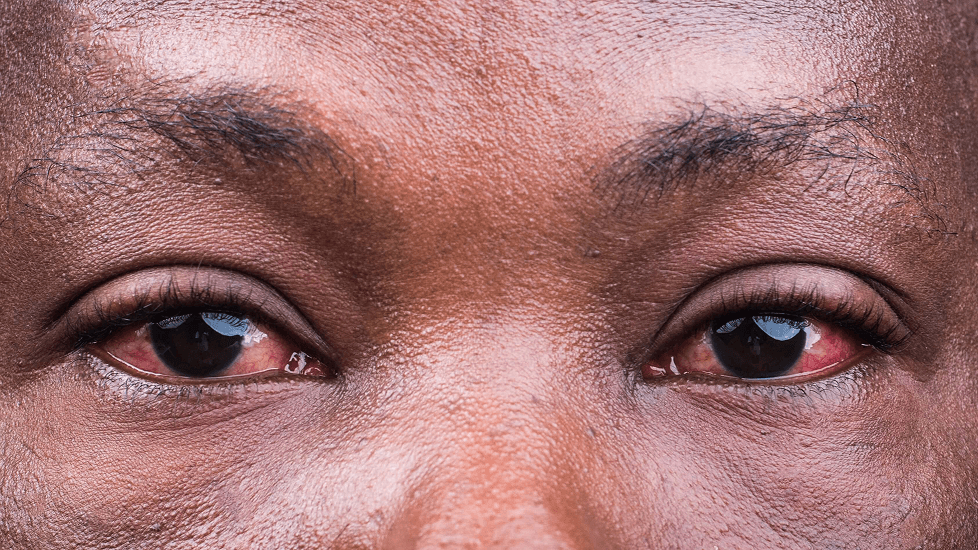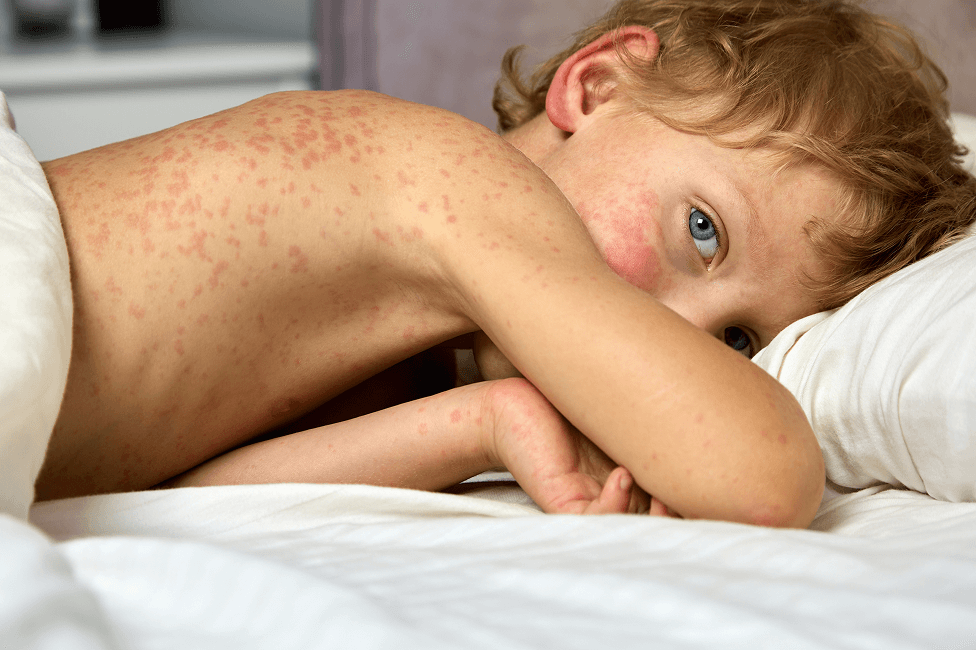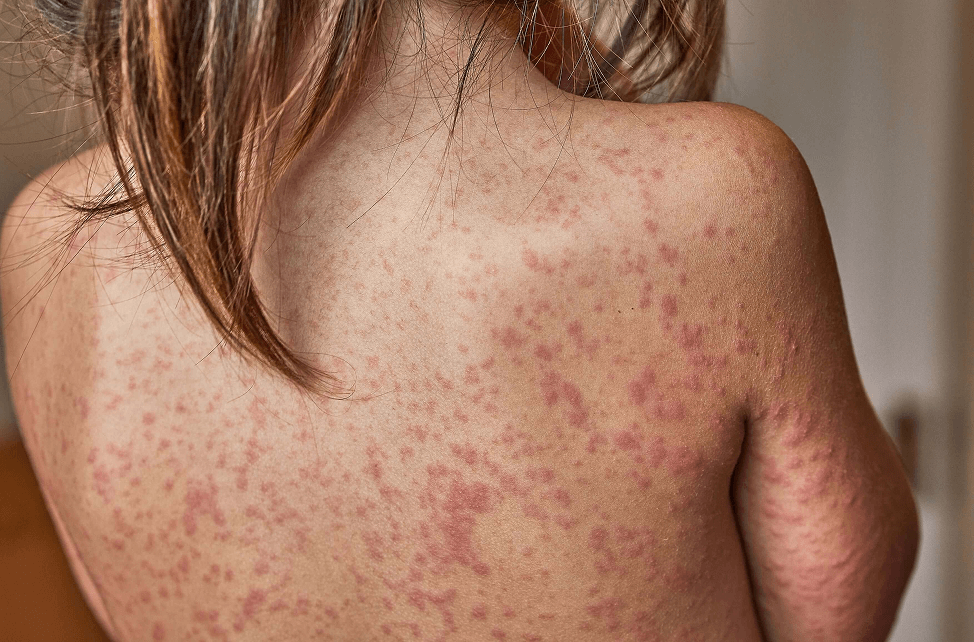Measles is a respiratory infection caused by a virus that can make you very sick and spreads easily. Measles is mainly spread through the air. You can catch measles when someone with measles coughs or sneezes, and the spray from their droplets land in your nose or mouth. The virus can live in the air for an hour or more which means you can catch it by being in the same room with a person with measles or where someone with measles has recently been.
Did you know?
In severe cases, measles can cause swelling of the brain, which is called encephalitis. This can lead to seizures, permanent brain damage, hearing loss or death. Measles occurring during pregnancy has been associated with miscarriage, premature delivery and babies born with low birth weight.
What are the symptoms of measles?
- Measles begins with a fever, aches and pains, runny nose, a severe cough (often bronchitis, an infection of the airways) and very red eyes. You may think it is a cold. Symptoms can appear in people who are not immune 7-21 days after being exposed to the virus.

- In a few days, a reddish blotchy rash begins around the face and head, then spreads down to the body, arms and legs. Bright light may cause eye pain.

- Measles can cause an ear infection or pneumonia (a serious disease where breathing becomes difficult).
Did you know?
Measles is very contagious four days before the rash starts and up to four days after. This is why it is important to stay home if you know you have been exposed to someone with measles.
Who is more likely to get very sick from measles?
- Babies and young children
- Pregnant people
- People with weakened immune systems
What should I do if I think me or my child(ren) have been exposed to measles or have symptoms?
Avoid contact with others. Stay home from work, school or daycare. Call your health care provider or local public health office for advice. If you are going to a clinic or hospital, tell the front desk staff that it might be measles and follow their instructions. To prevent the spread of measles you should not wait in the same waiting room as other people.
How can I protect myself?
There is no cure for measles. You can protect yourself by making sure you are vaccinated. The measles vaccine is offered free of charge as part of Manitoba’s Recommended Routine Immunization Schedule and to those who meet Manitoba’s eligibility criteria. If you or your child(ren) are eligible for the MMR or MMRV vaccine, appointments can be scheduled through your health care provider or local public health. A list of public health offices in Manitoba is available here.
Please note that pharmacists do not administer publicly funded MMR or MMRV vaccines. For general health inquiries, you can also call Health Links – Info Santé at 204-788-8200 or toll-free at 1-888-315-9257.
Did you know?
If you are not fully vaccinated against measles, pregnant or have a weakened immune system and you were exposed to the virus, call your healthcare provider right away. Depending on when the exposure occurred, you could receive measles preventive treatment. This can protect you from measles infection or make the symptoms less serious.
Other ways to prevent spreading the virus are:
- frequent hand washing
- covering your nose and mouth when you cough and sneeze
- avoiding sharing personal items such as water bottles, lip gloss and cigarettes


